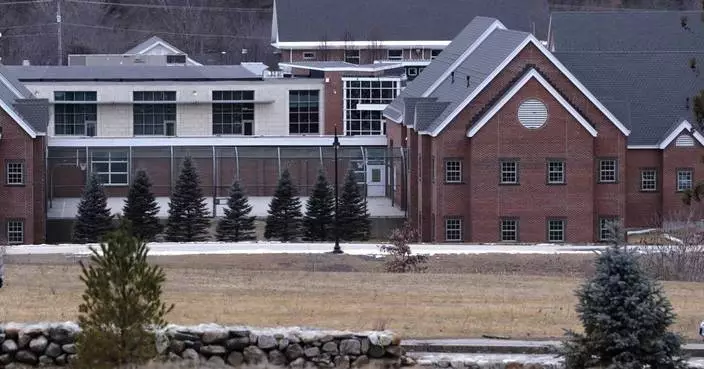A court in Myanmar sentenced four members of a family to as much as 16 years in prison with hard labor on Friday after finding them guilty of enslaving and abusing their two teenage maids, in a case that has prompted widespread public outrage over the girls' treatment.
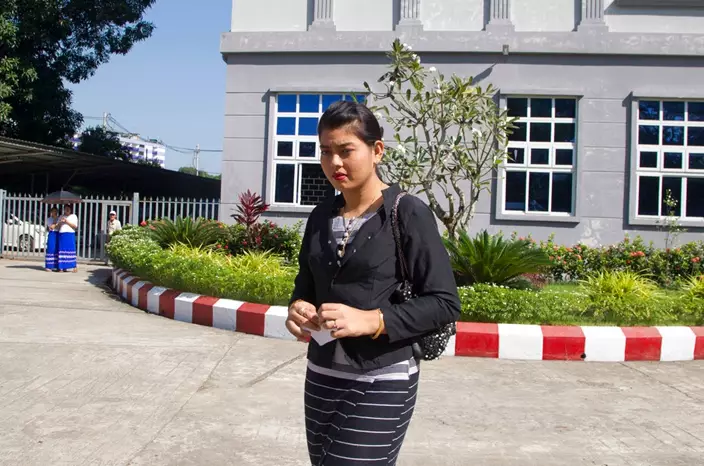
Defense Lawyer Hnin Su Aung of a family accused of abuse of their maids after the trial Friday, Dec. 15, 2017, in Yangon, Myanmar. A court in Myanmar has sentenced four members of a family to up to 16 years in prison with hard labor after finding them guilty of enslaving and abusing their two teenage maids, in a case that has prompted widespread public outrage over the girls’ treatment. (AP Photo/Thein Zaw)
The two girls were 11 and 12 when they were sent to the city from their poor village in Myanmar's delta to work as maids for a family that owned a tailor shop. Five years later, a local journalist heard allegations of child abuse at the shop and investigated, pretending he wanted a suit. He wrote an article about the girls' broken fingers and scars from cuts, burns and beatings.
Police then investigated and arrested six family members who were accused of locking up and torturing the girls for five years, stabbing them with scissors and knives, and burning them with an iron. They were charged with assault and violations of anti-trafficking and child protection laws.
After a trial lasting more than a year, a district court in Yangon, Myanmar's largest city, on Friday sentenced the mother, Tin Thuzar, to 16 years and one month and two adult children to 13 years and one month, defense lawyer Hnin Su Aung said. The husband of one of the children also received a sentence of 13 years and one month.
The two others were freed after the judge ruled that they had not been involved, Hnin Su Aung said.
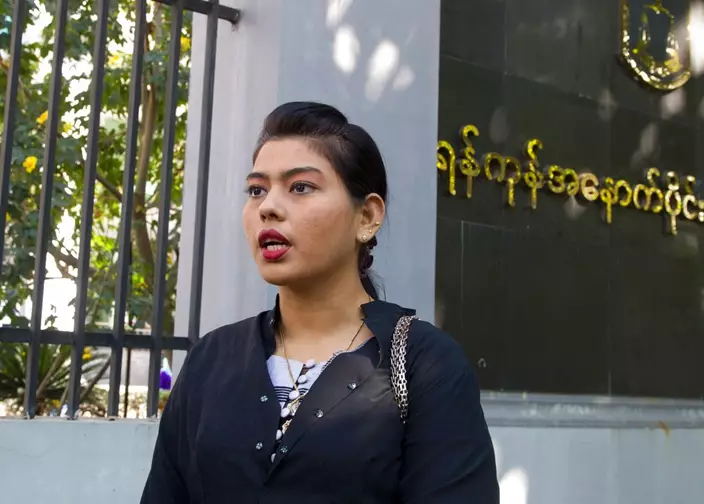
Defense Lawyer Hnin Su Aung of a family accused of abuse of their maids talks to journalists as she leaves a district court after the trial Friday, Dec. 15, 2017, in Yangon, Myanmar. A court in Myanmar has sentenced four members of a family to up to 16 years in prison with hard labor after finding them guilty of enslaving and abusing their two teenage maids, in a case that has prompted widespread public outrage over the girls’ treatment. (AP Photo/Thein Zaw)
Across Myanmar, tens of thousands of rural girls leave their families each year to become domestic workers in cities to provide money for their families, but often end up isolated and powerless. Child protection groups say maids are often underage and vulnerable to various forms of abuse, and that the country has no laws that specifically protect working children and ensure their health and safety on the job.
"There are often unreported abuse cases because of the victims' lack of knowledge of how to stand up to their employers and no labor laws that protect housemaids," said Tin Win, a child rights activist at the non-profit Yadana Maha children's educational group.
The widespread publicity given the case has put added pressure on the government of Aung San Suu Kyi to do more to counter human rights abuses. Thousands of young girls working as maids in the cities are from impoverished Kawmhu township, which is Suu Kyi's constituency.
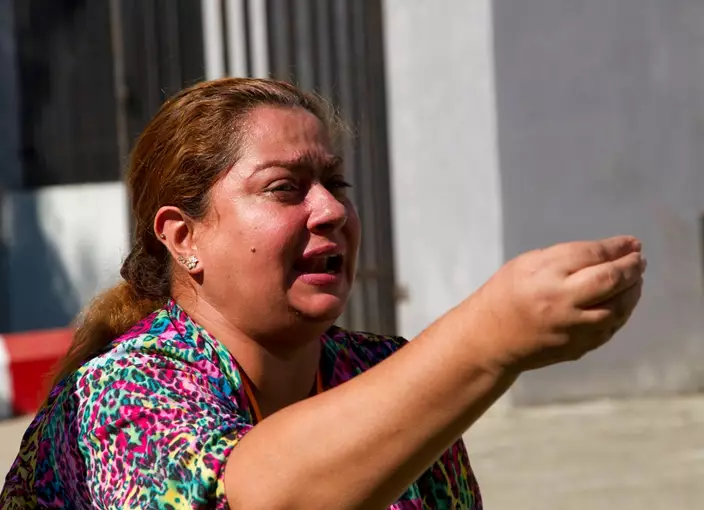
Thandar, mother of Yarzar Tun who was sentenced for allegedly abusing their house maids, cries outside a district court Friday, Dec.15, 2017, in Yangon, Myanmar. Tun was sentenced to 13 years and 1 month jail term for allegedly abused and enslaved two teenage girls who worked for them as maids for five years. (AP Photo/Thein Zaw)

Yangon western district court is seen on Friday, Dec.15, 2017, in Yangon, Myanmar. The court in Myanmar has sentenced four members of a family to up to 16 years in prison with hard labor after finding them guilty of enslaving and abusing their two teenage maids, in a case that has prompted widespread public outrage over the girls’ treatment. (AP Photo/Thein Zaw)
BRENTWOOD, N.H. (AP) — Jurors heard closing arguments Thursday in a landmark case seeking to hold the state of New Hampshire accountable for abuse at its youth detention center.
The plaintiff, David Meehan, went to police in 2017 and sued the state three years later alleging he was brutally beaten, raped and held in solitary confinement at the Youth Development Center in the 1990s. Since then, 11 former state workers have been arrested and more than 1,100 other former residents have filed lawsuits alleging physical, sexual and emotional abuse spanning six decades.
Meehan’s lawyer David Vicinanzo told jurors that an award upwards of $200 million would be reasonable — $1 million for each alleged sexual assault. He argued that the state’s clear negligence encouraged a culture of abuse marked by pervasive brutality, corruption and a code of silence.
“They still don’t get it,” Vicinanzo said. “They don’t understand the power they had, they don’t understand how they abused their power and they don’t care.
But the state’s lawyer said Meehan’s case relied on “conjecture and speculation with a lot of inuendo mixed in” and that zero liability should be assigned to the state.
“There was no widespread culture of abuse,” attorney Martha Gaythwaite said. “This was not the den of iniquity that has been portrayed.”
Gaythwaite said there was no evidence that the facility’s superintendent or anyone in higher-level state positions knew anything about the alleged abuse.
“Conspiracy theories are not a substitute for actual evidence,” she said.
Meehan, whose lawsuit was the first to be filed and first to go to trial, spent three days on the witness stand describing his three years at the Manchester facility and its aftermath. He told jurors that his first sexual experience was being violently raped by a staffer at age 15 and that another staffer he initially viewed as a caring father-figure became a daily tormenter who once held a gun to his head during a sexual assault.
“I’m forced to try to hold myself together somehow and show as a man everything these people did to this little boy,” he said. “I’m constantly paying for what they did.”
Meehan’s attorneys called more than a dozen witnesses, including former staffers who said they faced resistance and even threats when they raised or investigated concerns, a former resident who described being gang-raped in a stairwell, and a teacher who said she spotted suspicious bruises on Meehan and half a dozen other boys.
“The rot started at the top," Vicinanzo said Thursday. “The fish rots from the head. The tone starts there.”
The state called five witnesses, including Meehan’s father, who answered “yes” when asked whether his son had “a reputation for untruthfulness." Among the other witnesses was a longtime youth center principal who saw no signs of abuse over four decades, and a psychiatrist who diagnosed Meehan with bipolar disorder, not the post-traumatic stress disorder his side claims.
In cross-examining Meehan, the state’s attorneys portrayed him as a violent child who continued causing trouble at the youth center and a delusional adult who is exaggerating or lying to get money. In her closing statement, Gaythwaite apologized if she suggested Meehan deserved to be abused.
“If I said or did anything to make that impression or to suggest I do not feel sorry for Mr. Meehan, I regret that,” she said. “It was my job to ask difficult questions about hard topics so you have a full picture of all of the evidence.”
Her approach, however, highlighted an unusual dynamic in which the attorney general’s office is both defending the state against the civil lawsuits and prosecuting suspected perpetrators in the criminal cases. Though the state will be relying on Meehan's testimony in the criminal cases, it has tried to undermine his credibility in the current case.
Continuing in that vein Thursday, Gaythwaite reminded jurors that log books and other records indicate Meehan sustained a groin injury in playing football in 1998 and not from a rape in which he said he was knocked unconscious and left on an athletic field. It wouldn’t make sense for multiple staffers to coordinate their reports, she said.
“Even if all those folks were motivated to help someone cover up a crime, are you really supposed to believe they could pull it off?” she said.
“Do you know any governmental agency anywhere that could be that efficient and that organized?” she said. “We couldn’t even get our witnesses here on time to court.”
But Vicianzo pointed out that the staffer who initially documented the injury had been promoted despite an ombudsman's recommendation that he be fired for hitting a teen.
"The denial, the entitlement of our state government, our state bureaucrats, is unbelievable,” he told jurors. “It’s hard to accept. You don’t have to accept it, and I’m confident you won't.”
The jury will begin deliberations Friday after hearing further instructions from the judge.
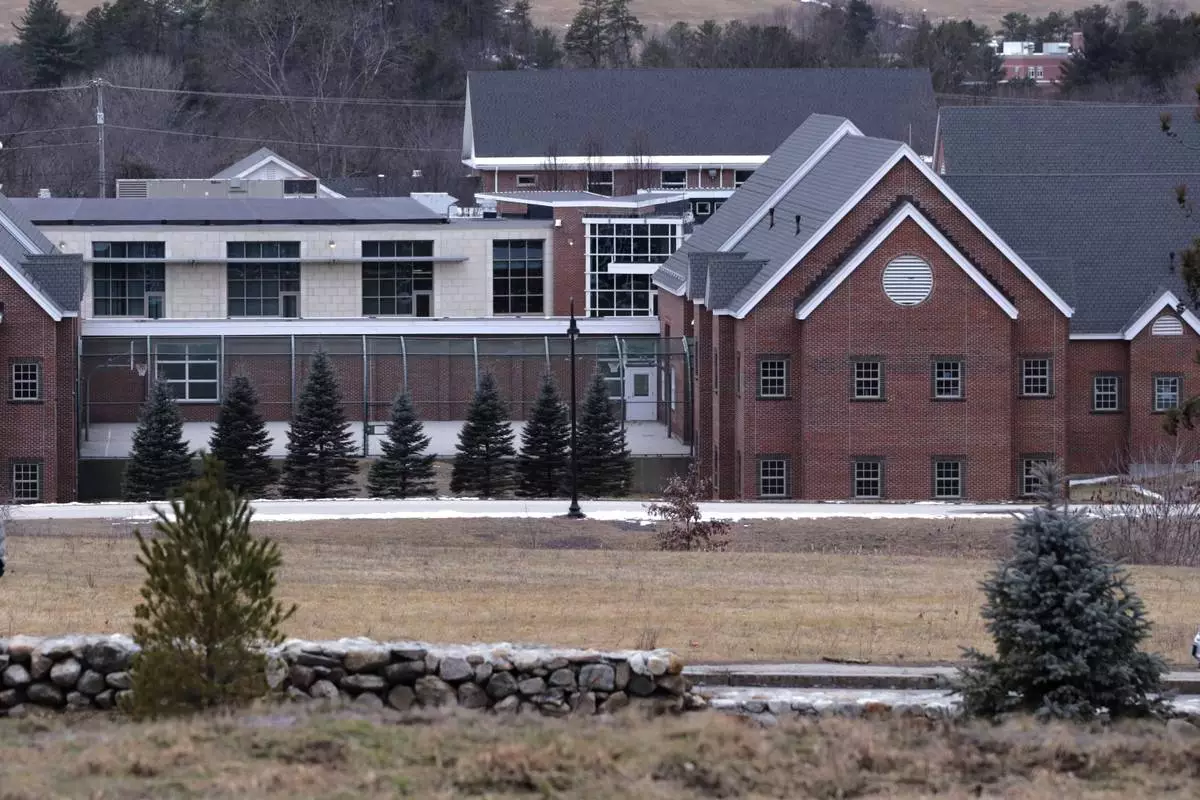
FILE - The Sununu Youth Services Center in Manchester, N.H., stands among trees, Jan. 28, 2020. Jurors on Wednesday, May 1, 2024, heard the final witness in a landmark trial seeking to hold the state accountable for alleged abuse at the facility. (AP Photo/Charles Krupa, File)








